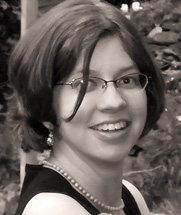By Eric Sorensen
In the middle of the last century, a Tennessee preacher-turned-sociologist, Tolbert H. Kennedy, found a relatively untapped pool of doctoral students among the nation’s black college graduates. Between 1944 and 1965, when Washington State University barely had a few dozen black students, he and fellow ex-preacher Wallis Beasley helped produce more black doctors of sociology than all but two schools, the University of Chicago and Ohio State.
Among them was a young man who went from the hardscrabble coal country of western Pennsylvania to graduate first in his class at Wilberforce, the oldest black college in the country, and get a master’s degree at Bowling Green University. Casting about to study for his doctorate, he fielded fellowship offers from nearly half a dozen universities.
Kennedy, then the head of the Division of Social Sciences, told the student over the phone what it was like at WSU and made it clear that he took pride in having so many outstanding black graduate students. He followed up with letters and calls offering to answer any questions.
“I was so impressed with that attention that I decided to go there,” recalls William Julius Wilson, sitting in one of three offices he keeps at Harvard University. “You have to understand, I didn’t get that kind of attention at the other universities.” Continue story →


